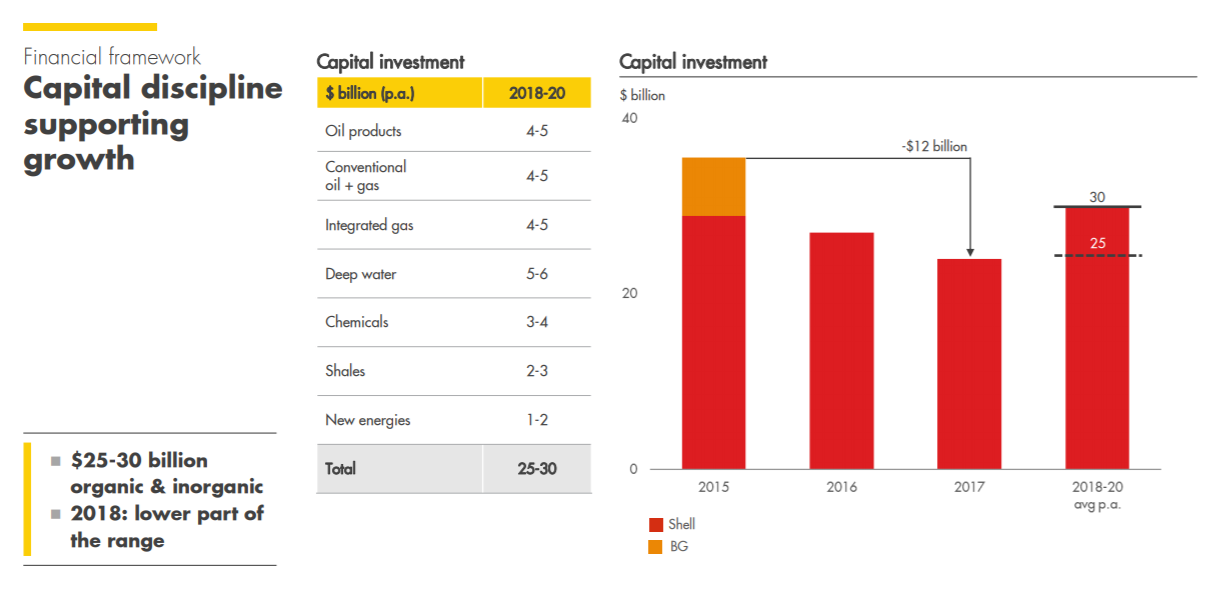

(RDSA)shares were down 1.2% at the start of London trading. The increase was due to additional potential impacts around contracts, writedowns of receivables, and credit losses in Russia, a Shell spokesperson said. Shell, whose market capitalization is around $210 billion, had previously said the Russia writedowns would reach around $3.4 billion.
#Shell takes big writedown update#
The post-tax impairments of between $4 billion and $5 billion in the first quarter will not impact the company’s earnings, Shell said in an update ahead of its earnings announcement on May 5. With Brent now trading below $60 a barrel and with the Organization of Petroleum Exporting Countries and its allies seemingly not in any hurry to make any further cuts to their own production, to promise anything more would be folly.Shell will write down up to $5 billion following its decision to exit Russia, more than previously disclosed, while soaring oil and gas prices boosted trading activities in the first quarter, the company said on Thursday. But that language is intentionally and justifiably vague. Shell (LON:RDSa) CEO Ben van Beurden said on Thursday that the company’s intentions to complete the $25 billion program remains unchanged. At a yield of 6.86%, that is no small consolation to long-term investors. The only safe bet would seem to be that the dividend - one of the most important for European pension funds - will continue to be paid at its current level in one form or another.

In an extreme case, it may even be forced to resort to a scrip dividend again to avoid any further rise in debt levels, a tactic it last used to keep shareholders happy for a couple of years after the BG Group acquisition. The risk is that the coronavirus, having infected the Chinese economy, will force Shell (LON:RDSa) to choose between higher leverage or suspending buybacks altogether. Margins in refining and marketing, and in chemicals, all weakened against a backdrop of soft Chinese demand in the fourth quarter, and the increasingly obvious impact of the coronavirus on the Chinese economy leaves little scope for an improvement any time soon. Unfortunately, that looks like wishful thinking. It would be nice to think that Shell (LON:RDSa) will be able to move on after putting the writedowns behind it. Other impairments, notably in Australia and Singapore, took the total value of writedowns in the quarter to $2.94 billion, although the company was also able to soften the blow by booking some non-cash gains on derivatives and deferred tax positions. The company joins an ever-growing list of majors forced to admitted their bet on shale has turned sour: Chevron (NYSE:CVX), BP (LON:BP) and Equinor (OL:EQNR) have all already taken similar hits, unable to escape the glut caused by associated gas coming out of new oil fields in the Permian and other shale basins. Gearing, of course, depends on the value of the company’s equity as well as its debt, and that was hit by some painful writedowns, notably $1.65 billion mainly related to U.S. Gearing, the ratio of debt to equity, rose to 29.3% from 27.9% three months earlier – drifting further away from its medium-term target of 25%. In the three months to December, it had bought $2.8 billion, but that had only been made possible by allowing the debt reduction target to slip.

The hit was so severe that the Anglo-Dutch giant said it would slow the pace of share buybacks to only $1 billion in the current quarter, from an average of $2.5 billion a quarter over the last 18 months. Royal Dutch Shell (LON:RDSa) shares tumbled to their lowest in nearly three years on Thursday after the company unveiled a wretched set of figures for the fourth quarter of 2019, hit by falling operating margins and big writedowns on investments in North American shale gas and elsewhere.


 0 kommentar(er)
0 kommentar(er)
